Aerospace Electronics
West Coast Solutions brings decades of demonstrated excellence in delivering high efficiency, radiation hard, and cost-effective solutions for space electronics spanning applications from focal plane electronics to power supplies, and cryocooler electronics to batteries. Here are some examples of how we can help you:
- Low noise, high efficiency power supplies
- Focal place interface electronics
- Cryocooler control electronics
- Input ripple filter design
- Active vibration cancellation design
- Launch lock
- Advanced customization
- Digital design and firmware
- Space component selection
- Mechanical packaging and FEA
- Advanced thermal design
- Prototyping- build and test
- Flight hardware
A few examples of our recent work are provided below:
Hybrid Battery Supercapacitor (HBS)
The West Coast Solutions HBS enables a new generation of high-power payloads on SmallSats by providing >700W sustained power from a 1U (1000 cc) hybrid battery. Targeted applications include advanced propulsion technologies, lasercom, high data rate downlink transmitters, large array infrared sensors, synthetic aperture radar (SAR), and directed energy. TRL 6 testing of a flight-design prototype is underway on a Missile Defense Agency SBIR Phase II-E. Applied Vibration was completed December 2024, and Thermal Vacuum and EMI testing are on track for February 2024.
-
Extremely high-power-density battery, 2-3X competing technologies
-
High reliability, radiation tolerant space design
-
150 Wh energy and >700W power in 1U form factor
-
Cycle life > 30,000
-
Scalable for higher energy and higher power
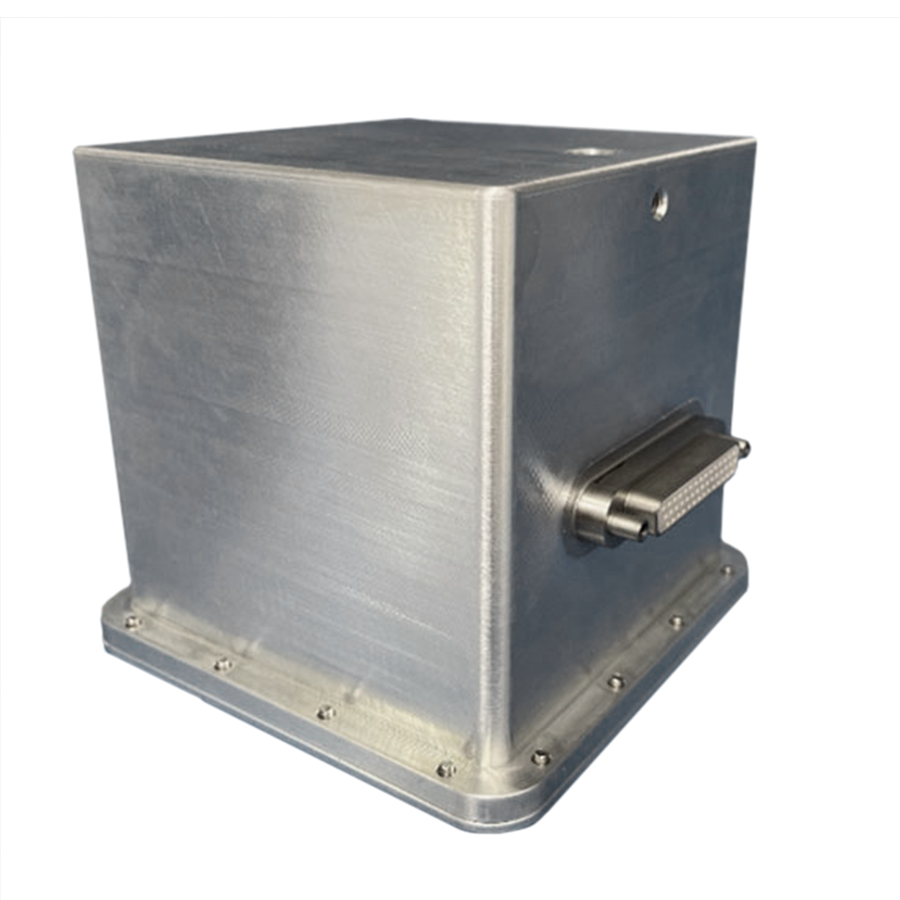
Custom Focal Plane Electronics Suite
West Coast Solutions developed and delivered a Focal Plane Electronics (FPE) suite for JPL which consisted of three separate modules: the analog Focal Plane Interface Electronics (FPIE), the FPIE Power Supply Unit (PSU), and the digital Interface Instrument Electronics (IIE). Based on prior strong performance on JPL programs, WCS was tapped to produce and deliver four (4) complete suites of Engineering Models for Flat Sat testing and four (4) complete Flight Model suites. All deliveries were completed in 2023 with the last deliveries taking place in June.
- Analog focal plane electronics
- Precision, low noise focal plane electronics power supplies
- FPGA (RTG4)-enabled high speed data pipe
- Closed-loop payload heater control
- Payload power distribution
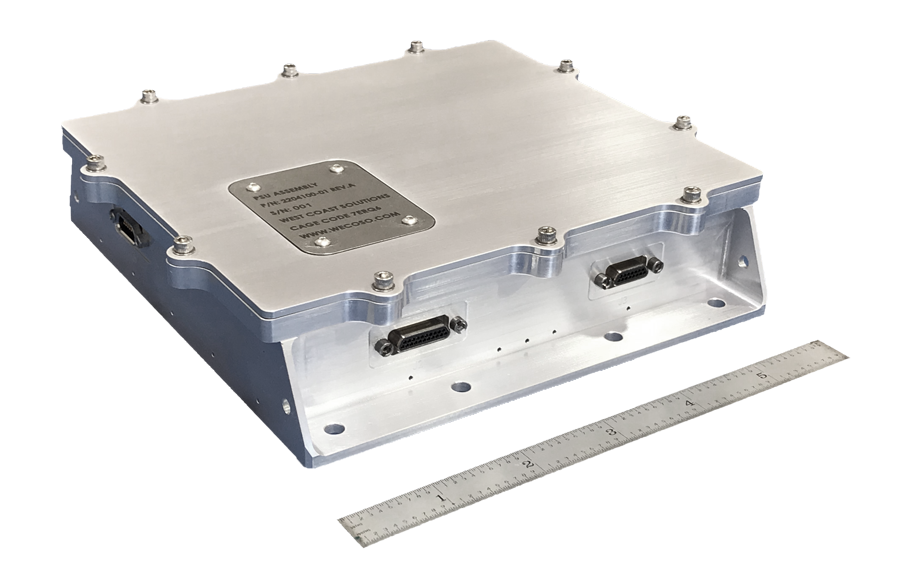
Airborne Focal Plane Power Supply Units (PSU)
West Coast Solutions designed, built, tested, and delivered seven (7) PSU’s to the Jet Propulsion Lab for various airborne flight experiments. The PSUs can generate five positive and two negative outputs that exhibit the following capabilities:
- Low AC noise < 30mV pk-pk
- High precision +/- 2%
- Up to 6A Loads
The PSUs also provide the following system level features:
- Discrete output control
- Output regulation telemetry
- Short circuit protection
- Inrush current protection
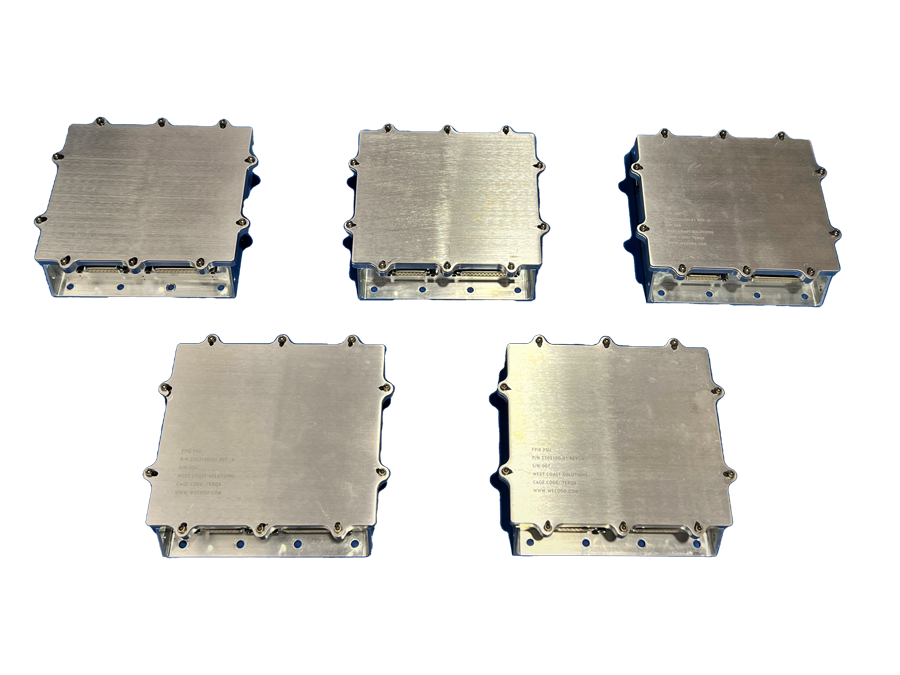
Flow Sensor Electronics (FSE)
West Coast Solutions was contracted by Creare to develop the power and signal conditioning electronics for the oxygen flow sensor for the Portable Life Support System (PLSS). WCS developed the electronics for the novel Creare MEMS flow sensor. A “path-to-flight” brassboard was built and demonstrated with the Creare sensor and then delivered to the end user for additional testing. The fully-packaged radiation hard flight electronics has been designed and is soon to be implemented.
- Space suit oxygen flow sensor electronics
- Precision signal conditioning and communications
- Brassboard build and test (hardware and firmware)
- Radiation hard flight design
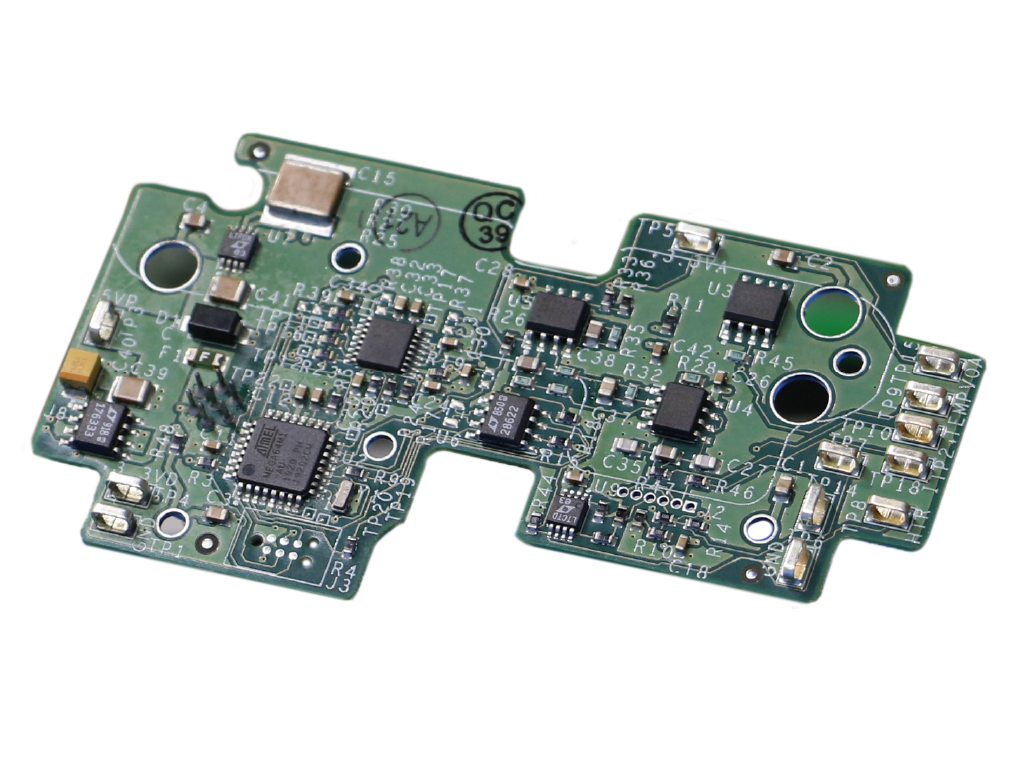
Precision Mirror Mechanism Pointing Electronics (PMMCE)
West Coast Solutions was hired by Aerospace Corporation to develop the control electronics for a novel, high-precision pointing mechanism for future USAF Next Generation Overhead Persistent Infrared (OPIR) missions. During the initial phase, WCS developed a “path-to-flight” brassboard with dual high-speed ADC channels, FPGA and firmware, and dual motor drive circuits. The fully-packaged radiation hard flight electronics will be developed in the future.
- OPIR pointing mirror control electronics
- Dual high-speed ADC, FPGA, and motor drives
- Design and prototype, including firmware
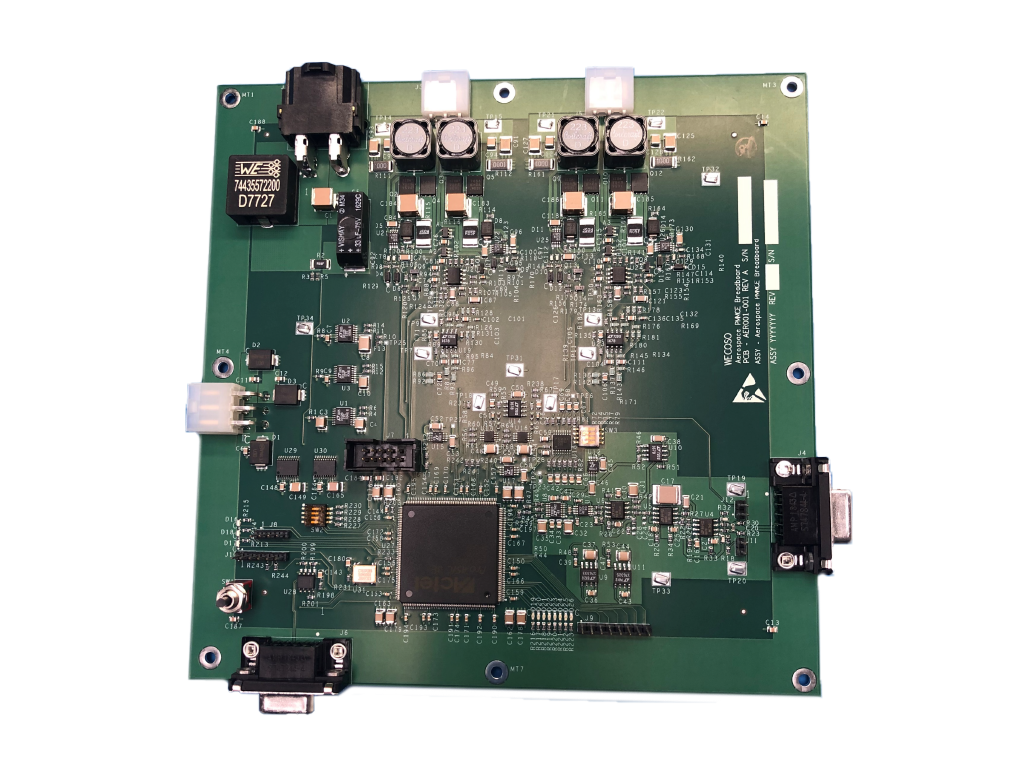
Micro Cryocooler Control Electronics (MCCE)
Our partners at Creare have been developing cryocooler electronics since 2008. The Creare-WCS cryocooler collaboration began in 2015 and has now progressed through a series of successful NASA and DOD SBIR programs into multiple active flight programs, including the Hyperspectral Thermal Imager (HyTI) scheduled to launch in late 2022. WCS brings many decades of hands-on, space flight CCE experience to the strong Creare team, resulting in a combination that cannot be matched in terms of knowledge, experience, capability, and track record.
- Multi-year, Multi-program Creare-WCS collaboration
- High-performance, yet affordable CCE designs
- Compact Cryocooler Electronics (C3E) for low power (<50W) applications where size and mass are priorities
- MCCE-TS (Tactical Space) for cost-sensitive, moderate duration space missions
- MCCE-RH (Radiation Hardened) for long-life strategic missions
- Scalable solutions from 20W up to 200W, or higher
- Tailorable options: active vibration control, input ripple filtering, and launch lock
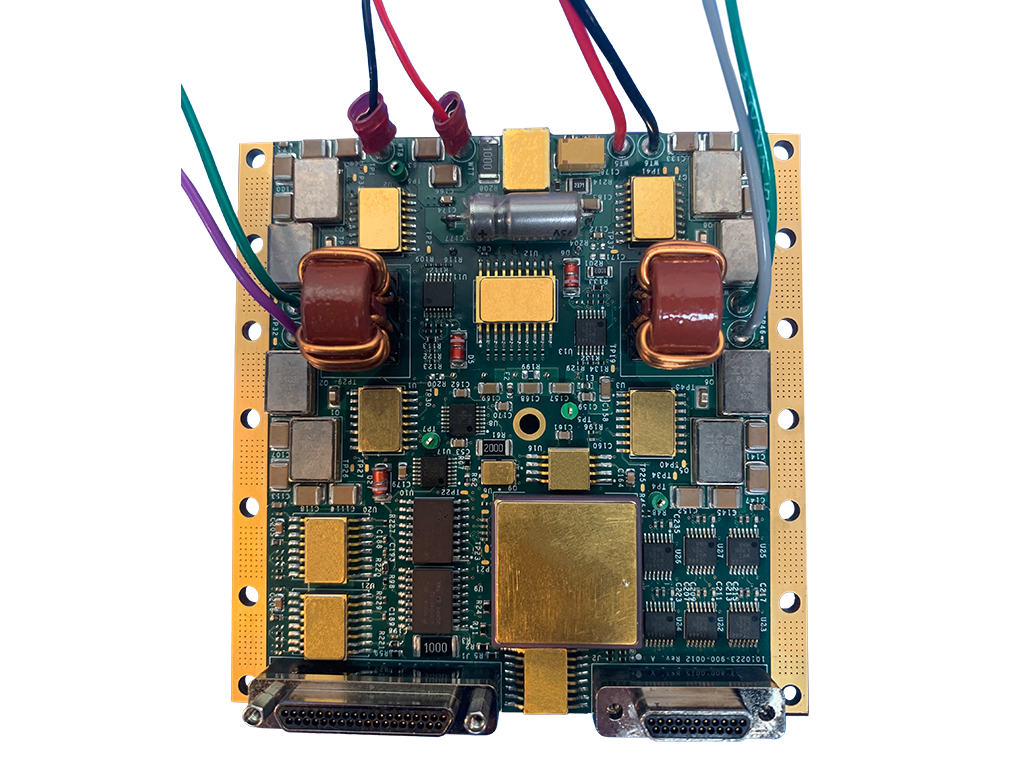
Results... Delivered.
At West Coast Solutions, our skilled firmware, electrical, mechanical, and software engineers led by seasoned program managers expertly plan and execute all phases of your program, from imagineering thru hardware realization.